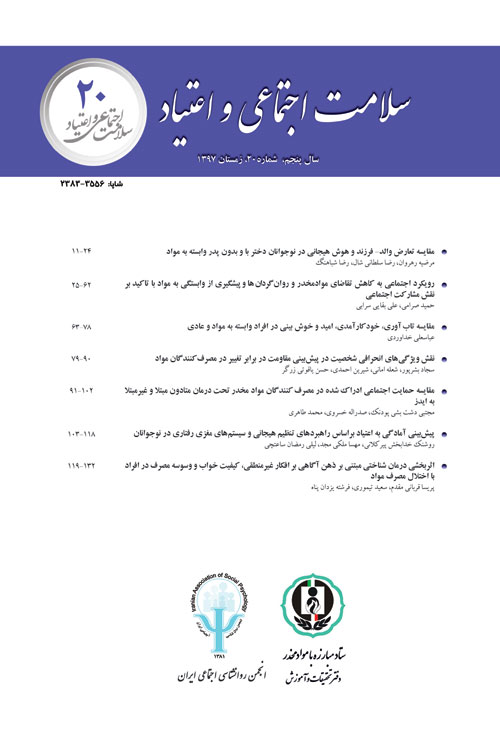Social Indices of Health and Drug Users
Author(s):
Abstract:
Social indices of health are defined as the conditions and environment in which individuals are born, grown up, live, work, and deal with diseases. These include social gradient, early stages of life, stress, social deprivations, work environment, unemployment, social support, healthy food, transportation, and addiction. Socio-economic factors impact risky behaviors and health in drug users. Drug use is a risky behavior associated with short-term and long-term health implications. Individual risk factors are related to health outcomes, and social factors determine risky behaviors and health outcomes. These factors indirectly impinge users health by shaping their individual behaviors, and negatively impact them by limiting access to facilities and welfare systems, living in the suburbs, and treatment avoidance. The aim of interventions is to enhance users health, for which social factors have to be taken into consideration. Improving health in deprived and vulnerable individuals is possible through appropriate plans, filling the gap between the rich and the poor, as well as creating positive health gradient for all socio-economic walks of life. Social component of health are different in different countries, and are decided upon based on realities and evidences in each particular society. This article only addresses elements such as low socio-economic quality of life, homelessness, and imprisonment, and their impact on drug users health.
Keywords:
Language:
Persian
Published:
Social Health and Addiction, Volume:3 Issue: 10, 2016
Pages:
11 to 32
https://magiran.com/p1658151


